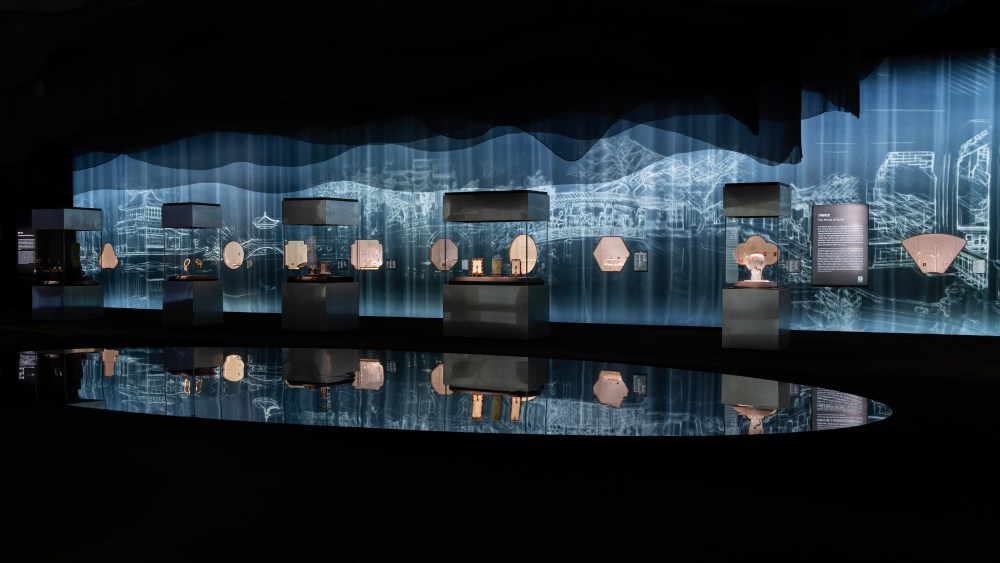SHANGHAI – Just in time for the celebration of the 60th anniversary of diplomatic ties between China and France, Cartier has unveiled its latest exhibition at Shanghai Museum East.
The “Cartier, The Power of Magic” exhibition marks the return of the Compagnie Financiere Richemont-owned jeweler to the state-owned museum after 20 years. In 2004, Cartier became the first jeweler to put on a comprehensive display of its work at Shanghai Museum.
This time around, the exhibition is showcasing over 300 pieces of jewelry, watches, archives, and other treasures from Cartier’s collection, juxtaposed with 34 Chinese artifacts borrowed from Shanghai Museum, The Palace Museum, and other national museums. Some of the pieces, such as mysterious ones from the famous Sanxingdui Ruins in Chengdu, have been recently excavated.

According to Pierre Rainero, Cartier’s director of image, style and heritage, the exhibition is a reflection of how Chinese art and Chinese culture has influenced Cartier since its inception.
You May Also Like
Recounting Cartier’s more than 170 years of history, Rainero said that since Louis Cartier became the head of the house in the 19th century, the company began exploring new terrains and forms of beauty to expand the Cartier aesthetic. Unable to travel to China at the time, the designers of the house drew inspiration from art books that documented Asian culture, in particular Chinese culture.
“What makes that [China’s] inspiration very special is the specificity of the Chinese culture, which is very rich in terms of symbols,” said Rainero, breaking down the influence to categories such as attachments between people, links with nature, mythical figures, and ancient Chinese poems.
“You can also see a dialogue with Chinese culture in the material or techniques used: the marquetry of bird’s feathers, for instance, the use of jade, and the association of different colors like red and black. This color combination is now deeply associated with the Cartier style,” Rainero added.
Rainero’s sentiment was echoed by Chu Xiaobao, director of the Shanghai Museum, who said that the refined taste of Chinese antiques, gems and overall “free-spirited designs” helped endow Cartier creations “with the vibrant energy of nature and a unique and long-lasting vitality.”
The exhibition, which is a part of the official celebration of the 60th anniversary of diplomatic relations between China and France, is open to the public until Feb. 17, 2025. Visitors can make reservations on the brand’s WeChat Mini Program.
To offer visitors a unique viewing experience, Cartier partnered with Cai Guo-Qiang, the artist known for his gunpowder explosion art, to create the scenography and visual landmarks throughout the exhibition.
Using cutting-edge digital artistry, Cai fed into his AI model “cAI” landscape paintings by Ni Zan, one of the four master painters of the Yuan dynasty, and merged the AI-generated work with stone carving and ceramic works from his hometown of Quanzhou in Fujian Province to produce a scene from a traditional Chinese courtyard.

Cartier’s ties with China and Chinese culture were also highlighted at a jewelry showcase by the Bund. A day prior to the exhibition opening, Cartier hosted an intimate presentation of its “Nature Sauvage” high jewelry collection.
The event was staged within the Bund City Hall Plaza, a five-story neoclassical building that recently completed its ten-year renovation, an initiative led by renowned British architect David Chipperfield.
Cartier, taking residence within three floors of the building, created immersive suites that held over 400 pieces of its designs.
The showcase was divided into three major themes: “Twirl with the wind,” “Treasures of land,” and “Shapes of water.” A room for special orders and vintage Cartier Tradition pieces rounded out the viewing journey.

Pieces from its latest collection, first unveiled in May, drew the most interest from the local press and Cartier devotees. The collection featured animal species in unusual and imaginary scenes.

